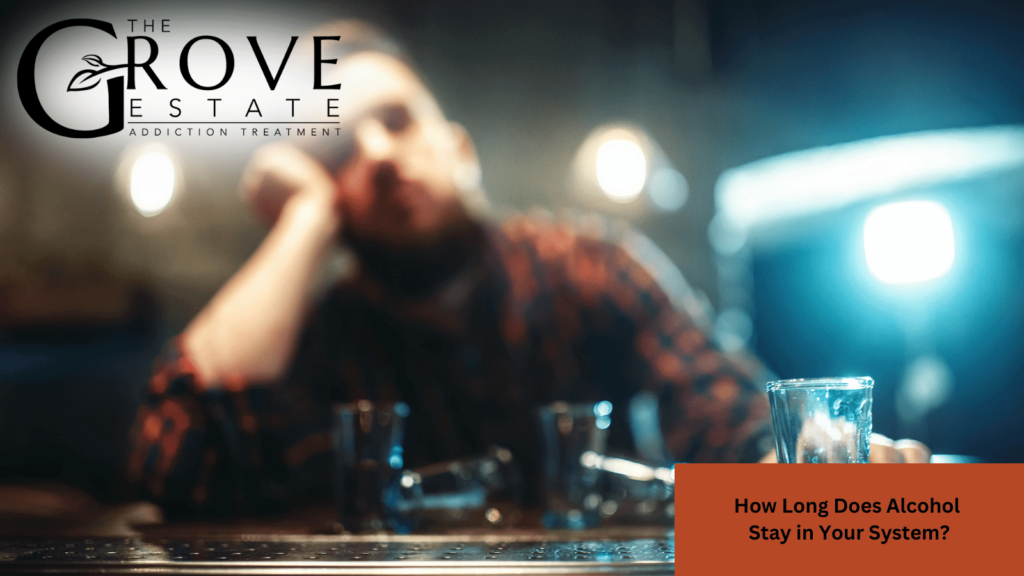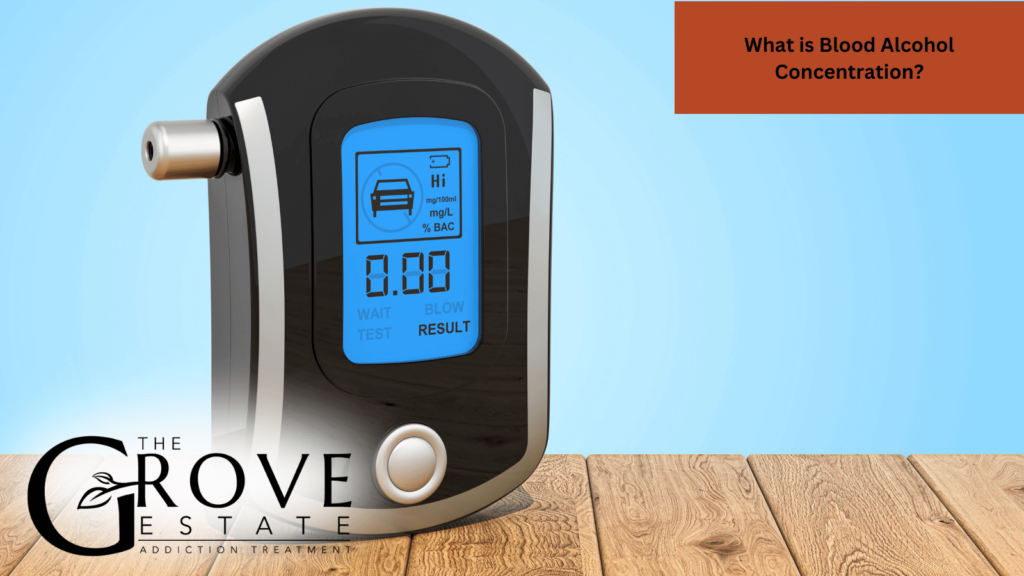Alcohol’s presence in the system and its detectability depend on various factors, including the amount consumed, individual metabolism, and the type of test used for detection. On average, the liver metabolizes alcohol at a rate of about one standard drink per hour. According to the National Institute on Alcohol Abuse and Alcoholism, alcohol can be detected in the bloodstream for up to 6 hours, in urine for up to 24-48 hours, and in hair for up to 90 days after consumption. This variability relays the importance of understanding how alcohol metabolism works and the implications it has for health, legal, and professional scenarios.

How Long Does Alcohol Stay in Your System?
Alcohol stays in your system for varying durations depending on the type of test used to detect it:
- Blood: Alcohol can be detected in the blood for up to 6 hours after drinking.
- Urine: Alcohol can show up in urine tests for 24 to 48 hours after consumption.
- Breath tests: Breathalyzers can detect alcohol for about 12 to 24 hours after drinking.
- Hair: Alcohol can be detected in hair follicle tests for up to 90 days after consumption.
These timelines can be influenced by factors such as the amount of alcohol consumed, individual metabolism rates, body mass, age, sex, and overall health.
The metabolism of alcohol involves its conversion into acetaldehyde by the enzyme alcohol dehydrogenase in the liver. Acetaldehyde is a toxic compound that is further broken down into acetic acid, and then into water and carbon dioxide, which are excreted from the body. The liver is the primary organ responsible for this process, metabolizing over 90% of consumed alcohol.
Factors influencing the rate of alcohol metabolism include the individual’s age, gender, liver health, and genetic factors, as well as external factors like the amount of alcohol consumed and the presence of food in the stomach, which can slow down the absorption of alcohol into the bloodstream. The efficiency of the liver in processing alcohol can significantly affect how long alcohol remains detectable in the system.
What Factors Affect How Long Alcohol Stays in Your System?
Several factors can influence how long alcohol remains in your system, including:
- Age and Sex: Older individuals and females typically metabolize alcohol more slowly than younger individuals and males.
- Body Weight and Metabolism: Heavier individuals may process alcohol more quickly, but a faster metabolism generally speeds up alcohol breakdown, regardless of body size.
- Food and Drink Strength: Consuming alcohol with food can slow its absorption rate, while the strength of the alcohol (proof) affects how quickly it enters your system.
- Mood and Overall Health: Stress and poor health can slow the body’s ability to process alcohol, while good health and a balanced mood can enhance metabolic efficiency.
These factors collectively determine the duration alcohol stays detectable in the body, influencing its effects and the time required to sober up.

What is Blood Alcohol Concentration?
Blood Alcohol Concentration (BAC) represents the percentage of alcohol in a person’s bloodstream. It is measured either directly through blood tests or indirectly via breath, urine, or saliva tests. BAC is expressed as a decimal, such as 0.08%, which means 0.08 grams of alcohol per 100 grams of blood. The rate at which BAC rises depends on factors like the amount and rate of alcohol consumption, body weight, and metabolic rate.
Legal limits for BAC vary by country and sometimes within regions of a country, but a common standard for driving under the influence is a BAC of 0.08%. At this level or higher, an individual is considered legally impaired in many jurisdictions. For commercial drivers and individuals under the legal drinking age, the limits are often lower, reflecting a stricter stance on alcohol consumption and impairment.
What is The Duration of Alcohol in Different Tests?
Alcohol detection times in breath, blood, urine, and saliva tests
- Breath tests: Alcohol can be detected in the breath for 12 to 24 hours after consumption.
- Blood tests: Alcohol can be detected in the blood for up to 6 hours, though this can extend to 12 hours depending on consumption levels.
- Urine tests: Alcohol can be found in urine for 24 to 48 hours after drinking. Some advanced tests may detect alcohol metabolites up to 80 hours post-consumption.
- Saliva tests: Alcohol can be detected in saliva for 12 to 24 hours, similar to breath tests.
The accuracy of alcohol tests depends on the method used and the timing of the test relative to alcohol consumption. Breath and blood tests provide immediate results and are most accurate within hours after drinking. Urine tests have a longer detection window but may not be as accurate for pinpointing exact alcohol levels at a specific time. Saliva tests offer a balance between non-invasiveness and a moderate detection window. The choice of test depends on the required detection period and the purpose of testing (e.g., workplace screening, legal evidence, or medical diagnosis).
How Long Does It Take to Feel the Effects of Alcohol?
The onset of alcohol’s effects can vary but generally begins within minutes of consumption. Most individuals start to feel the effects of alcohol within 15 to 45 minutes after drinking. These effects can include relaxation, euphoria, and lowered inhibitions.
Factors influencing how quickly alcohol takes effect include:
- Rate of Consumption: Drinking quickly can lead to faster intoxication.
- Alcohol Content: Higher alcohol content in beverages can accelerate the onset of effects.
- Empty vs. Full Stomach: Alcohol is absorbed more quickly on an empty stomach.
- Body Weight and Composition: Individuals with less body mass or lower fat content may feel the effects of alcohol faster.
- Metabolism Rate: People with faster metabolisms process alcohol more quickly, potentially leading to quicker onset of effects.
- Tolerance: Regular drinkers may have a higher tolerance, delaying the perceived effects of alcohol.
What Are the Misconceptions About Sobering Up Quickly?
Many believe that methods like taking cold showers, drinking coffee, or engaging in vigorous exercise can rapidly lower Blood Alcohol Concentration (BAC) and sober them up. However, these actions do not significantly speed up the elimination of alcohol from the bloodstream.
The only true way to sober up is through time; the liver metabolizes alcohol at a consistent rate. No external factors can accelerate this process significantly. While certain activities might make a person feel more alert, they do not reduce BAC faster, as the body requires time to metabolize and eliminate alcohol naturally.

How to Get Help for Alcohol-Related Issues?
If you are facing alcohol-related issues, there are various resources and support systems to help. Professional counselors and therapists can offer guidance, while support groups such as Alcoholics Anonymous provide community and recovery programs. Medical treatments, including detox programs, are available for withdrawal management. Online resources and helplines can also direct you to local support services.
For immediate concerns, like alcohol poisoning, seek medical attention right away. If you’re worried about the legal or health implications of alcohol in your system, getting assessed by a healthcare provider or consulting with a legal professional is advisable. Long-term support and treatment are crucial for managing alcohol misuse and preventing relapse.
How long dodoes 2 glasses of wine stay in your system?
Two glasses of wine can be detected in the bloodstream for about 3-6 hours, in urine for up to 24 hours, and in hair for up to 90 days, depending on individual metabolism and the body’s alcohol processing rate.
How can I metabolize alcohol faster?
Metabolizing alcohol faster isn’t possible as the liver processes it at a constant rate. However, staying hydrated, eating well, and getting enough rest can help your body handle alcohol more efficiently.
What are the negative effects of alcohol?
Negative effects of alcohol include impaired judgment, coordination issues, potential addiction, liver damage, increased risk of certain cancers, and mental health problems like depression and anxiety.
How long does EtG (Ethyl Glucuronide) stay in your urine?
EtG, a metabolite of alcohol, can be detected in urine for up to 48-72 hours after drinking, sometimes longer depending on the amount of alcohol consumed.
How does the type of alcohol consumed affect how long it stays in your system?
The type of alcohol consumed can influence how long it remains detectable in your system, primarily due to variations in alcohol content. For instance, spirits tend to have a higher alcohol concentration compared to beer or wine, potentially leading to longer detection times if consumed in equivalent volumes. However, the primary determinant of alcohol metabolism is the rate at which the liver processes alcohol, which is generally consistent across different types of alcohol. This process does not significantly vary with the specific type of alcoholic beverage consumed but rather with the amount of alcohol ingested.
Additionally, exploring the types of alcohol can provide insight into how different beverages are metabolized and their potential effects on the body. Understanding these differences is essential for individuals concerned about alcohol’s impact on health and well-being, as well as those navigating recovery or moderation strategies.
What role does metabolism play in alcohol’s presence in the system?
Metabolism plays a crucial role in determining how long alcohol stays in your system. The liver metabolizes the majority of consumed alcohol at a steady rate, typically breaking down one standard drink per hour. This rate can vary slightly among individuals due to factors like age, gender, liver health, and genetic differences in the enzymes involved in alcohol metabolism. Therefore, while the type of alcohol consumed doesn’t drastically alter how quickly your body processes alcohol, individual metabolic rates do influence the duration alcohol remains detectable in various tests.
For individuals seeking to understand or change their alcohol consumption patterns, residential rehab programs can provide comprehensive support. These programs offer medical and therapeutic assistance to help individuals manage their alcohol use, taking into account personal factors such as metabolism and overall health.

Share This Post



